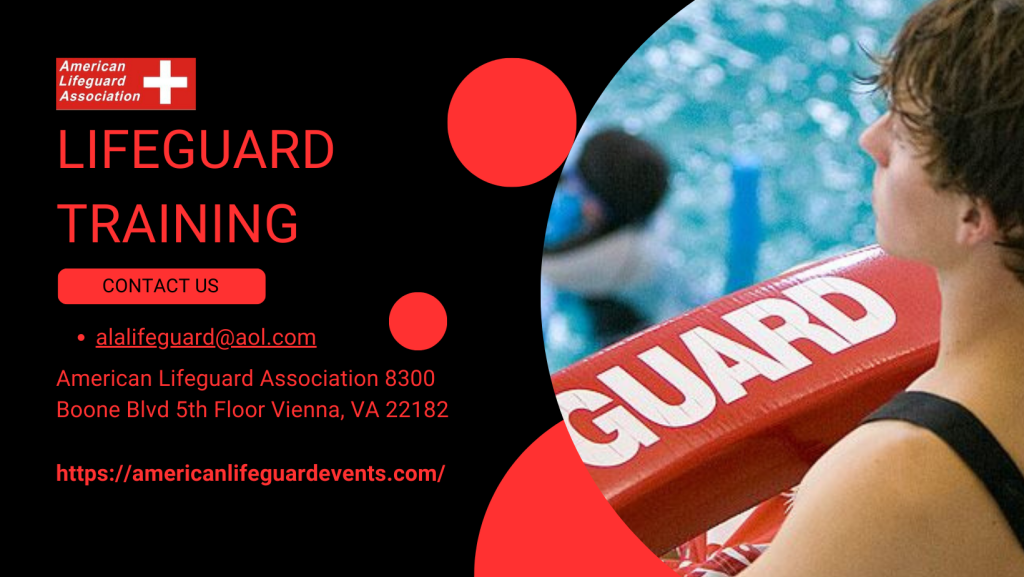
Lifeguard training is the first step on this noble path. It’s not just about learning how to swim well or looking good in the iconic red lifeguard swimsuit; it’s about developing the skills and knowledge necessary to respond swiftly and effectively in life-threatening situations.
The Essentials of Lifeguard Training
Lifeguard training programs are comprehensive and demanding. They cover a wide range of skills and knowledge areas, including:
Swimming Proficiency: Lifeguards must be strong swimmers. They need to be able to navigate the water with ease and speed, as well as dive to rescue submerged victims.
First Aid and CPR: A crucial part of lifeguard training is learning how to provide immediate first aid and cardiopulmonary resuscitation (CPR) when necessary. These skills can mean the difference between life and death.
Rescue Techniques: Lifeguards are trained in various rescue techniques, from reaching and throwing aids to more advanced skills like using rescue tubes and backboards.
Water Safety Knowledge: Understanding water currents, tides, and weather conditions is vital for lifeguards to make informed decisions and prevent accidents.
Communication Skills: Effective communication is key for a lifeguard. They must be able to convey instructions clearly to both patrons and their fellow lifeguards in high-stress situations.
Emergency Action Plans: Lifeguards are trained to create and execute emergency action plans. These plans outline the steps to take in various emergency scenarios.
Challenges in Lifeguard Training
Lifeguard training is no walk in the park. It’s physically demanding and mentally taxing. Trainees often face challenges that test their dedication and resilience. One of the most common hurdles is the physical fitness requirement. Lifeguards must maintain a high level of fitness to be effective in their roles. They need to swim long distances, tread water for extended periods, and carry out physically demanding rescues. This requires rigorous training and conditioning.
Additionally, lifeguard candidates must be prepared to confront their fears. Water can be a formidable force, and being responsible for the safety of others means facing the possibility of danger head-on. Overcoming this fear and remaining calm under pressure is a significant part of the training process.
Triumphs in Lifeguard Training
While lifeguard training is undoubtedly challenging, it’s also incredibly rewarding. The sense of accomplishment that comes with mastering essential skills and knowledge is a triumph in itself. Imagine the feeling of completing a timed swim with a rescue dummy or successfully performing CPR on a training mannequin. These small victories build confidence and readiness for real-life emergencies.
Lifeguard training also fosters a strong sense of camaraderie. Trainees often form deep bonds with their fellow lifeguards-in-training, relying on each other for support and encouragement. This teamwork is essential in real-life rescue situations, where effective communication and trust can make all the difference.
Lifeguarding as a Lifelong Skill
The skills learned during lifeguard training are not just for the job; they are valuable life skills. Lifeguards often carry their training with them throughout their lives, whether they continue to work in aquatic environments or not.
Knowing how to perform CPR, administer first aid, and respond to emergencies is knowledge that can save lives in any setting. It’s a skill set that empowers lifeguards to make a positive impact on their communities, both on and off duty.
The Importance of Lifeguard Training
The importance of lifeguard training cannot be overstated. It’s a critical component of water safety, ensuring that our beaches, pools, and waterfronts remain enjoyable and secure places for all.
Whether you’re a parent taking your children to the local pool, a beachgoer enjoying a sunny day by the ocean, or someone who simply loves the water, you can rest easier knowing that there are trained lifeguards on duty, ready to respond if needed.
Conclusion: The Unsung Heroes of the Waterfront
American Lifeguard Events celebrate the dedication and commitment of lifeguards across the nation. Their rigorous training transforms ordinary individuals into heroes in red, ready to protect and serve their communities in and around the water.
So, the next time you visit your favorite beach or pool, take a moment to appreciate the lifeguards who watch over you. They are the silent heroes, the guardians of our waterfronts, and their training is the foundation of their unwavering commitment to your safety.